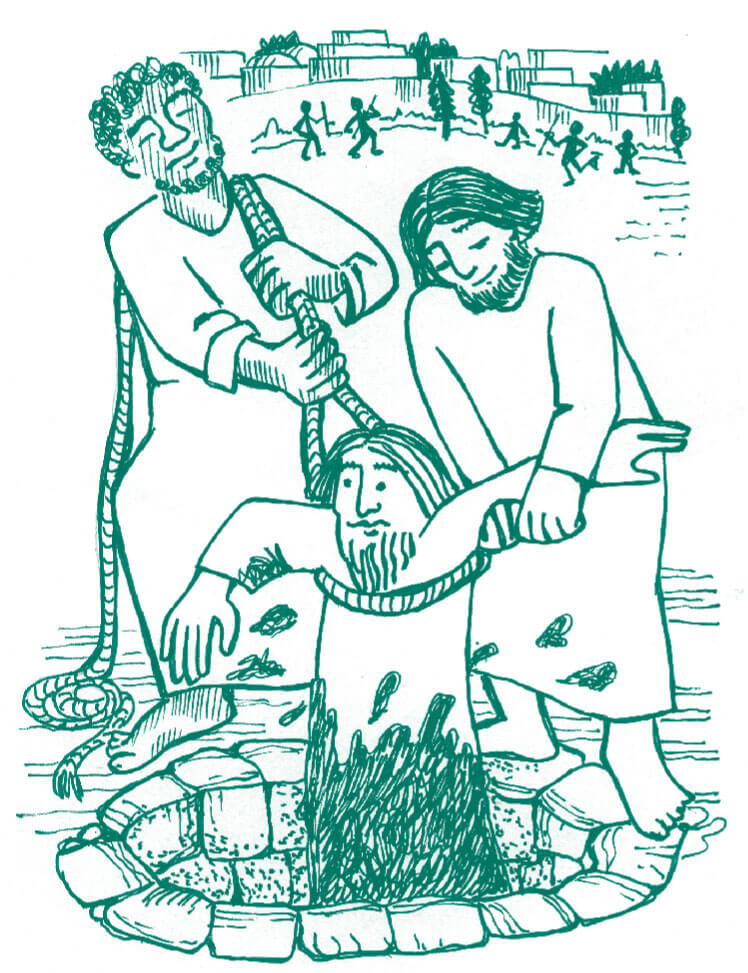
Sunday’s first reading takes place in the last days before the destruction of Jerusalem in 587 B.C.E. (before the common era). The Babylonian army has laid seige to the city to starve out its defenders. The prophet Jeremiah urges the king to surrender to the Babylonian general Nebuchadnezzar, save the inhabitants of the city from starvation, and save the city itself from destruction. The situation is desperate, the characters drearily familiar to us.
Central in the story is the vacillating politician, King Zedekiah of Jerusalem, who relinquishes his power to his advisors and blows with the winds of popular sentiment.
At the king’s side are the government officials who stoke the fires of war, heedless of the plight of the city’s starving residents. With them are the experts, rival prophets who have bought their place in a corrupt regime with fantasies of economic success and military triumph.
Finally, there is one lone truthteller, the great prophet Jeremiah, unceremoniously shuffled from his jail cell to solitary confinement at the bottom of a muddy cistern.
The passage rings with irony. The officials’ obsequious concern for public morale contrasts with Jeremiah’s urgent concern to save as many as possible from horrible death and degradation.
The king’s acknowledgment that Jeremiah tells the truth fails to deliver the prophet from the advisers who throw him in the cistern. Only a foreigner, a lowly civil servant in the king’s court, responds to the prophet’s words with real concern for the hungry
of Jerusalem. It is worth noting this man is an Ethiopian.
Jeremiah in the cistern
The officials of Jerusalem said to the king, “This man ought to be put to death, because he is discouraging the soldiers who are left in this city, and all the people, by speaking such words to them. For this man is not seeking the welfare of this people, but their harm.”
King Zedekiah said, “Here he is; he is in your hands; for the king is powerless against you.” So they took Jeremiah and threw him into the cistern of Malchiah, the king’s son, which was in the court of the guard. They let Jeremiah down by ropes. Now there was no water in the cistern, but only mud, and Jeremiah sank in the mud.
But Ebedmelech the Ethiopian, a eunuch in the king’s house, left the king’s house and spoke to the king. “My lord king, these men have acted wickedly in all they did to the prophet Jeremiah by throwing him into the cistern to die there of hunger, for there is no bread left in the city.”
Then the king commanded Ebedmelech the Ethiopian, “Take three men with you from here, and pull the prophet Jeremiah up from the cistern before he dies.”
Jeremiah 38.4-6, 8-10
- Where do we hear the voice of the prophets today? Who tells us the truth about how to re-weave civic community?
- What other voices compete for our attention?
